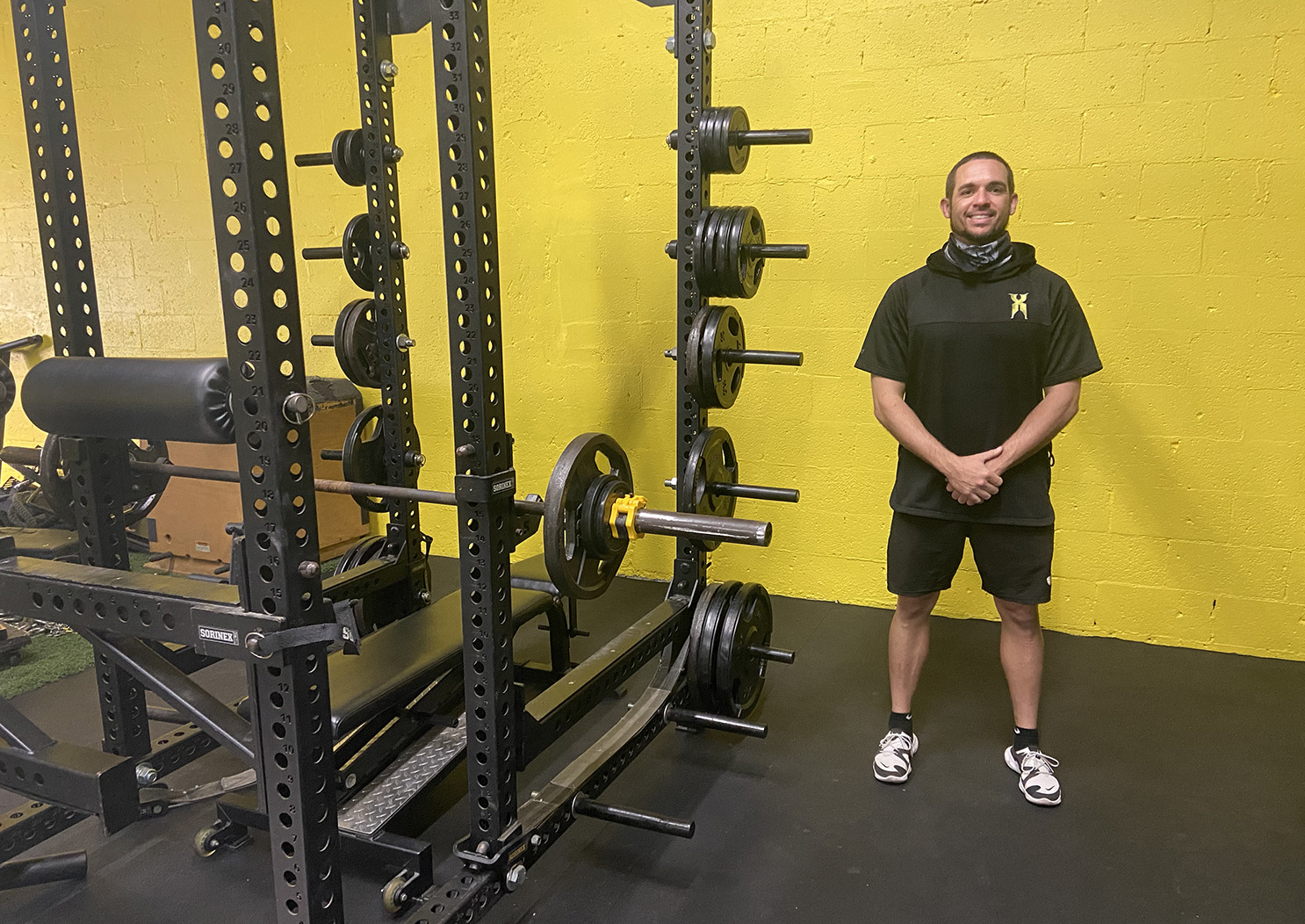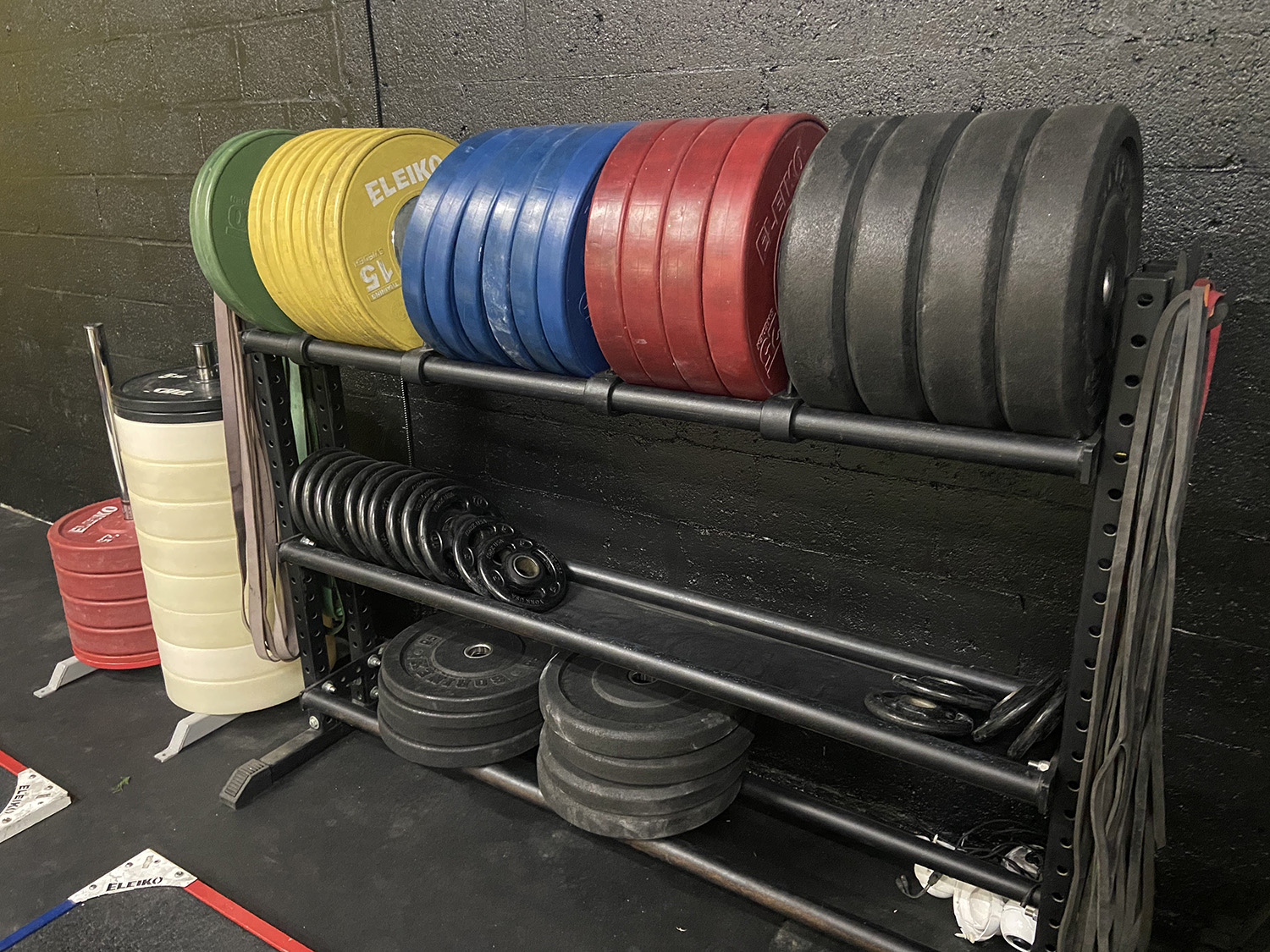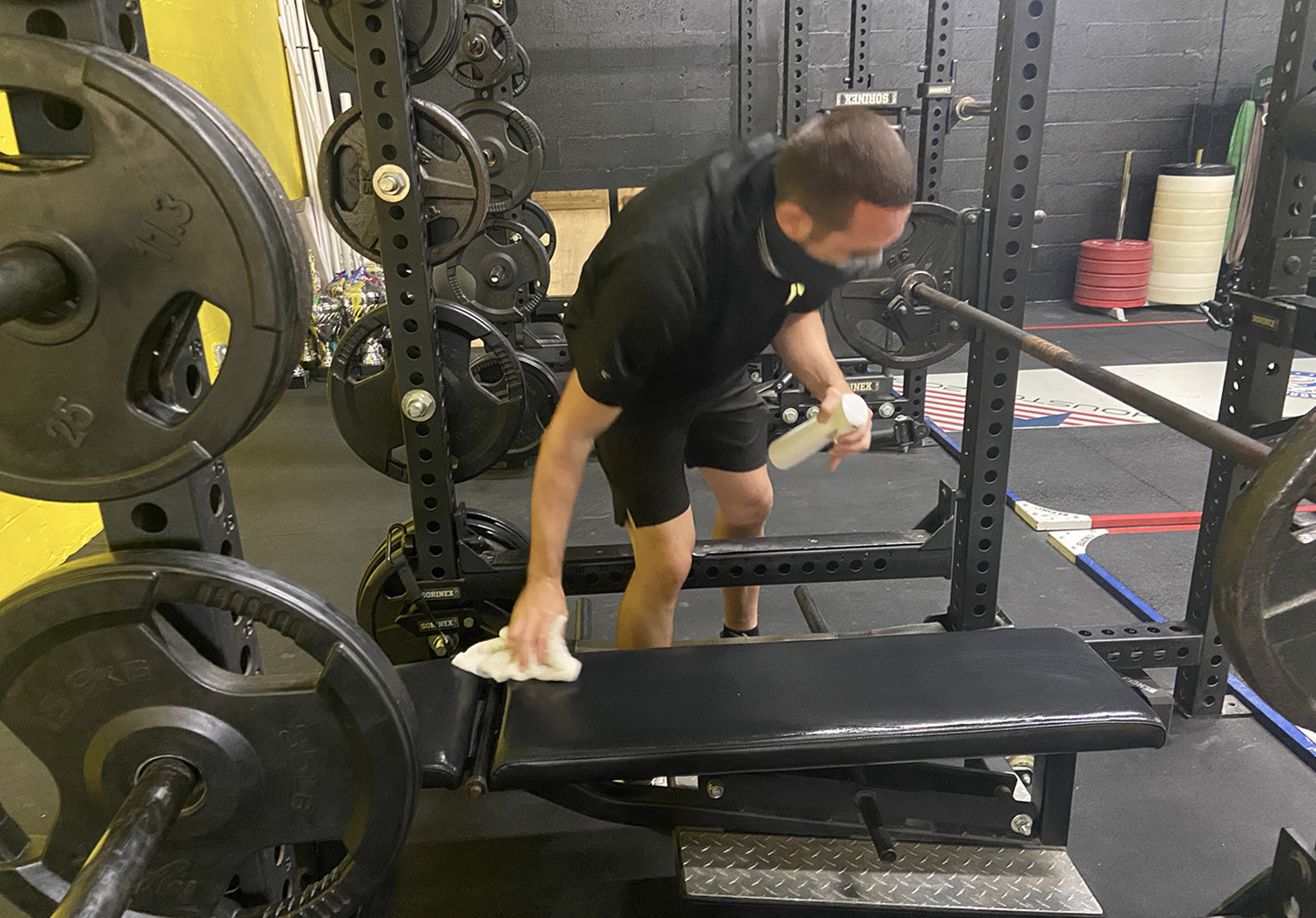NextGenRadio
Florida Newsroom
Finding, coaching and training public media’s next generation.
“In the Time of COVID-19”
Daniel Marks is the owner of a private gym in South Florida. The pandemic forced him to stop in-person training sessions. He found a way to stay in business by allowing his clients to take home his gym equipment and exercise virtually. Now, he’s back training in-person, and he’s enforcing safety precautions to prevent the spread of COVID-19.
Illustration by Natalia Polanco
Gym owner keeps clients exercising and business alive after shutting down
Daniel Marks, the owner of a private gym in South Florida, hustles to save his business by loaning out his equipment and providing virtual workout sessions during the coronavirus pandemic.
“How am I going to continue to operate and run my business even though I’m shut down physically?” Daniel Marks, the owner of Exclusive Performance gym near Fort Lauderdale, Florida, said he asked the day he had to close down his business.
Gym owner keeps clients exercising and business alive after shutting down
The coronavirus pandemic forced Broward County gyms to shut down from mid-March to May, making them among the hardest-hit industries in 2020. Marks complied with the county’s orders and closed his gym, but he knew he had to figure out a way to still train his clients to maintain his livelihood.
The day he was forced to close, he sent a mass text to his clients letting them know his game plan.
“I took out my pen and paper and said, ‘Listen, we’re going to create a contract. I’m going to have all you guys sign it, and you’re going to rent out the equipment,” he said. “‘The moment you rent out the equipment, it’s your responsibility.’”
Marks owns two Exclusive Performance gyms in South Florida. He scheduled one five-hour time slot in each location so every client could pick up equipment that day. When the time slot at the first gym finished, he drove half an hour to his other location.
His clients waited outside as he called them in one-by-one to take out any equipment they needed according to the fitness plan Marks created specifically for them. He loaned out barbells, benches, weight plates, sandbags, medicine balls, and anything else that could be physically carried out of the facility.
If clients returned the equipment damaged, or didn’t return it at all, then Marks planned to charge their credit cards however much the equipment cost.
“This is my life savings, and it is a lot of money that’s invested,” he said. “When I had everything leave, it was very disheartening. It was, wow, I don’t know if I’m ever going to get this back.”

Daniel Marks is the owner of Exclusive Performance gym in South Florida. (Photo by Amber Amortegui)
A standard barbell could cost anywhere from $100 to $500, not including the weights. Collectively, other pieces of equipment could cost up to $12,000.
Once his clients had the equipment they needed, he started hosting virtual training sessions on video conference platforms like Zoom, Facetime, and WhatsApp. Marks didn’t charge patrons any more or any less than what they were paying for training before the pandemic. He figured it wasn’t their fault they couldn’t workout at his gym, and it wasn’t his fault he couldn’t allow them to enter.
“People were very skeptic because, ‘Hey, my house is dirty,’ or ‘Don’t mind my dogs. I’m training and here comes my dog or cat running across the screen,’” Marks said.
He changed his style of training by relying on verbal cues and sometimes demonstrating the exercises on camera.
“It wasn’t something that I would enjoy doing because I’m more of a hands-on, person-to-person,” he said. “I need to see what’s going on in order to be able to make the adjustment and get you moving in an optimal way.”
He was worried these virtual sessions wouldn’t work for his clients.
“When I saw people enjoying their workouts, I saw them constantly getting on the video conferencing, it made me feel so much better,” Marks said. “I’m like, ‘Wow, they’re going to enjoy this enough to where we’re going to have good success with this. But I don’t want this to go too long because I want them to return to a [gym] that they miss.’”
Marks continued virtual training sessions for more than two months until Broward County gave gyms the green light to reopen for in-person training. That same day, he said he contacted his clientele and gave them 24 hours to return everything he loaned to them.
To his surprise, he said everyone brought back all of his equipment in one piece.
“That moment of relief, ‘Wow, I’m still able to do my livelihood,’ and ‘Wow, everyone’s still coming back,’” he said.
In addition to getting all his equipment back, Marks has been able to stay in business without applying for a Paycheck Protection Program (PPP) loan.
But things didn’t necessarily go back to the way they were before the pandemic. Now, back in-person, Marks has started enforcing safety precautions like wearing masks, sanitizing equipment, and asking people to bring their own towels. He advised everyone of the new protocols to prevent the spread of COVID-19 through a mass text.
Marks told his clients to let him know if they’ve been exposed to the virus or if they’re not feeling well. When two of his clients tested positive for COVID-19, they told him and didn’t go to the gym. Once they recovered and tested negative, Marks welcomed them back.
Marks isn’t hosting any virtual training sessions now that his gym is operating in-person. It’s a ‘new normal’ for him and his clients. Still, the pandemic has changed him, his gym, and the relationship with his gym family.
“During tough times, people do come together, people are willing to sacrifice … being at home and training and working out with my own equipment,” he said. “And I know if you’re going to do that, then we’re pretty much coach and athlete–or trainer and client––for life.”

Marks loaned weighted plates and exercise bands to his clients while his gym was shut down because of the pandemic. (Photo by Amber Amortegui)

Marks and his staff frequently sanitize all the equipment at Exclusive Performance gym to prevent the spread of COVID-19. (Photo by Amber Amortegui)
Ariana Reyes, a competitive weightlifter, completes her exercise routine as Marks coaches her from a distance at his gym, Exclusive Performance, on Tuesday, Jan. 5, 2021. (Video by Amber Amortegui)
About NextGenRadio
The Next Generation Radio Project is a week-long digital journalism training project designed to give competitively selected participants, who are interested in radio and journalism, the skills and opportunity to report and produce their own multimedia story. Those chosen for the project are paired with a professional journalist who serves as their mentor.
This edition of the #NPRNextGenRadio project was produced in collaboration with WUSF Public Media in January 2021.
Acknowledgements
Visuals team lead Erica Lee, New Jersey-based freelance journalist, with Kevin Beaty of The Denverite and Colorado Public Radio.
Illustration team lead Yunyi Dai with Emily Whang and Ard Su
Digital Editor Alexis Richardson, Chief Innovation Officer, and Digital Strategist, “The Mom Edit,” based in Philadelphia.
Robert Boos of Metropolitan State in Minneapolis is our Web Developer.
Our journalist/mentors for this project were:
Gabriela Saldivia, independent journalist based in Spain.
Mark Schreiner, Reporter/Host at WUSF Tampa
Jessica Meszaros, Reporter/Host at WUSF Tampa.
Leslie Ovalle, Producer at WLRN Miami.
Molly Samuel, Environmental Reporter for WABE Atlanta.
Our Managing Editor this week was Amy Tardif, Regional Manager for StoryCorps, based in Chicago
NPR’s Next Generation Radio program is directed by its founder, Doug Mitchell.
